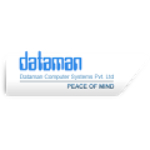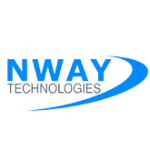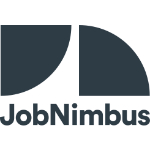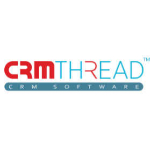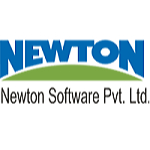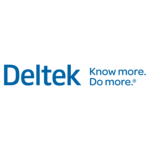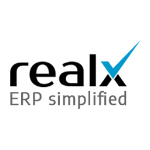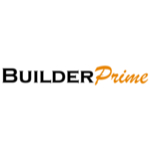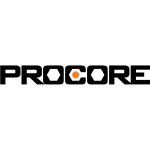TechnologyCounter provides genuine, unbiased real user reviews to help buyers make informed decisions. We may earn a referral fee when you purchase through our links, at no extra cost to you.
List of 15 Best Construction CRM Software
Showing 1 - 15 of 40 productsReal Builder By Dataman is a ERP Solution created to cater to the continuously increasing needs of the real estate sector. This software serves as an essential tool for managing various aspects of real estate, including development, construction, an...Read Real Builder Reviews
TACTIVE Construction is a software solution designed specifically for the construction industry. With its user-friendly interface features, TACTIVE streamlines project management, communication, and collaboration for construction teams of all sizes...Read TACTIVE Construction Reviews
CRM@MCIAPPS is a leading business solutions software from MCi Apps, designed to streamline customer relationship management for businesses. Our comprehensive platform is fully customizable and seamlessly integrates with all stages of a businesss valu...Read mciapps Reviews
Umber Ghar is a all-in-one solution for managing your household tasks seamlessly. With Umber Ghar, say goodbye to the stress of juggling multiple chores and stay on top of everything with ease. Designed to simplify your life, Umber Ghar is your trust...Read Umber Ghar Reviews
Nway Construction ERP is a software designed specifically for the construction industry that streamlines and simplifies all aspects of project management. With its intuitive interface features, Nway helps construction companies of all sizes increase...Read Nway Construction ERP Reviews
JobNimbus is a and dynamic project management software designed to streamline and optimize your business operations. With its user-friendly interface features, JobNimbus allows you to efficiently manage your team, tasks, and projects all in one platf...Read JobNimbus Reviews
SCRMpro is a software solution for all your customer relationship management needs. With its user-friendly interface features, SCRMpro streamlines your processes and helps you build stronger relationships with your customers. Say goodbye to manual ta...Read SCRMpro Reviews
CRMTHREAD is a platform designed to efficiently monitor and manage pre-sales, sales, and MIS processes. It is an exceptional business tool that is both cost-effective and user-friendly, providing your sales team with the ability to enhance your over...Read CRMTHREAD Reviews
Newton Construction, the premier solution for all your construction needs. With precision and excellence at the core of our company, we deliver top-notch services to help you build your dream projects. Our team of experts technology ensure efficient...Read Newton Construction Reviews
Deltek Visionis a leading project-based ERP software designed to empower businesses with real-time insights, streamlined processes, and improved collaboration. With its user-friendly interface and robust capabilities, Deltek Vision helps businesses o...Read Deltek Vision Reviews
Buildertrend is a tool for construction professionals, designed to simplify project management and streamline workflows. With its user-friendly interface and robust features, Buildertrend empowers builders, contractors, and remodelers to efficiently...Read Buildertrend Reviews
Realx ERP is a cloud-based program, making it the most cost-effective, hassle-free, and simple-to-use ERP solution available. It has the greatest ability of customization, and has the shortest implementation time and also provide superior customer su...Read Realx ERP Reviews
Capsule CRM is a all-in-one solution for small businesses and teams to manage their customer relationships seamlessly. With its user-friendly interface and powerful features, Capsule CRM streamlines your sales, marketing, and customer service process...Read Capsule CRM Reviews
Builder Prime is an all-in-one software designed to simplify and optimize the process of building and managing construction projects. With its user-friendly interface and powerful features, Builder Prime is revolutionizing the way construction compan...Read Builder Prime Reviews
Procore Construction is a and innovative software that has revolutionized the construction industry. With its user-friendly interface features, Procore has become a go-to solution for project management, collaboration, and real-time communication. Th...Read Procore Construction Reviews
- What Is Construction CRM Software?
- Top Reasons Why Businesses Need Construction CRM Software?
- What Are the Top Key Features of Construction CRM Software?
- What Are the Top Benefits of Construction CRM Software?
- What Are the Steps to Choose the Right Construction CRM Software?
- What Are the Types of Construction CRM Software for Different Industries?
- What Are the Technology Trends for Best Construction CRM Software?
- What Are the Deployment Options for Construction CRM Software?
What Is Construction CRM Software?
Construction customer relationship management (CRM) software is a technological solution employed by construction enterprises for the purpose of effectively managing and nurturing their client connections.
The utilization of this technology facilitates the optimization of client data management, the automation of marketing and sales procedures, the generation of comprehensive reports, and other related functionalities.
The construction CRM system facilitates the comprehensive monitoring of various customer-related activities, encompassing calls, emails, proposals, jobs, orders, and invoicing, under a unified platform. By establishing a consolidated platform for client communications, a firm may effectively disseminate current information to its customers and deliver outstanding customer service.
By utilizing building CRM software, enterprises have the capability to examine client data, thereby acquiring valuable insights and enhancing their comprehension of customers' requirements. This enables individuals to make well-informed judgments regarding the customization of business products.
Moreover, organizations have the capability to utilize the data extracted from the best construction crm software to develop focused marketing initiatives and evaluate their effectiveness.
In general, the utilization of construction CRM software is vital for construction enterprises seeking to cultivate more robust ties with their clientele. This enables organizations to acquire more profound understandings of their clientele and enhance the effectiveness of their customer relationship management.
Top Reasons Why Businesses Need Construction CRM Software?
1. Easy to use platform: CRM for construction industry facilitates the process of construction management by providing users with a user-friendly platform that enhances the efficiency of the development process and enhances customer satisfaction.
2. Increased efficiency: Construction customer relationship management (CRM) software facilitates the optimization of processes and enhancement of efficiency via the utilization of automation and reporting capabilities.
3. Timely Status Updates: Construction CRM software effectively monitors and records the advancement of projects, providing stakeholders with regular updates on their status. This facilitates the efficient management of several projects concurrently.
4. Data Consolidation: The utilization of construction CRM system facilitates the consolidation of project data into a singular location, hence enhancing the efficacy of resource and cost management through improved visibility and accuracy.
5. Real-time Tracking: The utilization of Construction CRM software facilitates the provision of real-time tracking and notification functionalities to team members, enabling them to remain updated on the status of projects and any modifications made to the plans.
6. Improved Collaboration: The implementation of Construction Customer Relationship Management (CRM) software fosters enhanced communication among all project stakeholders, resulting in improved decision-making processes and overall project outcomes.
7. Risk Management: CRM software for construction industry encompasses several risk management functionalities, including but not limited to budget forecasting and adherence, resource management, and other related functions.
8. Cost and Time Saving Features: The best construction CRM software provides a range of functionalities, including automated work scheduling, document management, and contact management. These capabilities contribute to the reduction of both time and expenses involved with project execution.
9. Advanced Reporting: The construction CRM system provides robust reporting and analytics functionalities, enabling managers to remain well-informed and expedite decision-making processes.
10. Improved Customer Service: Construction customer relationship management (CRM) software facilitates the monitoring of client interactions and enhances customer service through the provision of prompt responses and updates.
11. Right Resources Allocation: The utilization of Construction Customer Relationship Management (CRM) software facilitates the streamlined management of resources, so ensuring the appropriate allocation of resources to projects, thereby enhancing operational efficiency.
12. Contract Management: The best construction CRM software streamlines the process of contract management, facilitating the monitoring of agreement status, timetables, and payment milestones.
13. Quality Assurance Tools: CRM software for construction industry offers a range of quality assurance solutions that serve to uphold the standard of building materials and mitigate losses resulting from defects and mismanagement.
14. Safety Compliance: The utilization of the construction CRM system facilitates adherence to safety norms and rules established by regulatory authorities, hence enhancing the safety of employees.
15. Disaster Monitoring and Management: Construction CRM software offers prompt notifications of natural calamities or other potential hazards in the vicinity, thus facilitating the safeguarding of the project against potential losses or damages.
What Are the Top Key Features of Construction CRM Software?
Some of the top key features of construction CRM software include:
1. Customer Relationship Management (CRM): Construction Customer Relationship Management (CRM) software enables users to effectively oversee and maintain their interactions and connections with customers, providers, and partners. This technology facilitates the monitoring of customer interactions, consumer preferences, lead evaluation, and pipeline administration.
2. Project Management: CRM for construction industry is commonly utilized in job site settings to enhance real-time cooperation between on-site crew members and managers. This is achieved through the platform's project management functionality. The software facilitates convenient user access to schedules and task lists, enables job assignment to designated crew members, monitors timelines and costs, and ensures the timely achievement of project milestones.
3. Document Management: The construction CRM system, which is specifically tailored for the construction industry, aims to enhance document management by automating and streamlining document-related procedures. Furthermore, it guarantees the consistent utilization of papers that adhere to regulatory requirements.
4. Data Analysis & Visualization: The best construction CRM software facilitates the monitoring of data KPIs and offers tailored dashboards to optimize inventory management. Additionally, it aids in the visualization of data, which is of utmost importance in the realm of project management.
5. Change Order Management: The utilization of Construction Customer Relationship Management (CRM) software facilitates effective monitoring of change orders and ensures comprehensive oversight of any modifications made to the order list. This practice guarantees that the procedures adhere to regulatory standards and can be effectively monitored, hence minimizing the likelihood of mistakes and averting any disruptions in the operational environment.
6. Reporting: The utilization of CRM software for construction industry facilitates the efficient generation of real-time reports and pivot tables, so enabling the prompt acquisition of actionable insights. Additionally, this feature enables users to disseminate reports to relevant parties and conduct comparative analysis across many projects.
7. Integrations: The utilization of Construction CRM software facilitates the efficient coordination of various systems, thereby establishing a cohesive and standardized mechanism for the exchange of information. In addition to the aforementioned functionalities, users have the capability to establish connections with external data sources, synchronize their client base (both new and current), and generate documents from within the program interface.
8. Mobile App Support: Construction CRM system applications facilitate mobile accessibility by offering advanced functionalities, including GPS tracking, voice-to-text capabilities, scanning and photo attachments, as well as automatic push notifications.
9. Advanced Security: CRM for construction industry offers a comprehensive system of safeguards, encompassing features such as user-level access control, permissions management, and multi-factor authentication. In addition, it offers cloud storage capabilities and employs encryption methods that adhere to industry standards, thereby ensuring the safety and security of work-related data.
What Are the Top Benefits of Construction CRM Software?
1. Improved tracking of customer and project data: Construction client Relationship Management (CRM) software streamlines the task of monitoring and managing client and project data. This provides insights into client satisfaction, as well as comprehensive data regarding the advancement of the project including timeframes, budget allocation, and progress reports.
2. Automated workflow management: By employing the best construction CRM software, it becomes possible to automate workflows, resulting in time savings through the automation of customer reminders, task assignments, and resource management.
3. Improved coordination between project team members: Through the use of a centralized system, individuals are able to maintain communication and provide regular updates regarding progress, challenges, and necessary modifications to the project.
4. Increased customer engagement: CRM for construction industry facilitates enhanced customer engagement through the ability to monitor and document customer interactions. Additionally, it enables efficient retrieval of information pertaining to completed projects and follow-up duties.
5. Streamlined estimating process: Construction CRM system facilitate the generation of precise estimates and tenders, which may be effectively tracked within a project timetable on a construction site.
6. ROI optimization: By using the capabilities of automation, streamlining time use, and expediting data retrieval, enterprises that adopt construction CRM software can get a higher return on investment.
What Are the Steps to Choose the Right Construction CRM Software?
1. Identify your business needs: Prior to making a decision on the appropriate building CRM software, it is imperative to evaluate one's own requirements. When making a decision on the sort of CRM system to adopt, it is essential to carefully deliberate over the desired specifications and functionalities.
Additionally, Construction CRM software is crucial to assess the specific features that are deemed necessary for the organization's operations. Furthermore, it is imperative to ascertain the level of customer support that will be indispensable for the successful implementation and utilization of the CRM system.
2. Research different CRM software programs: Conduct thorough research to ascertain the range of features, customer support services, and pricing options provided by other vendors. It is advisable to peruse customer reviews in order to gain insights into the caliber of service given by the respective entity.
3. Determine a budget: Determine the budget allocation for the CRM software. One should take into account the expenses associated with hosting, training, implementation, and continuous support.
4. Consider scalability: The Construction CRM system is imperative to ensure that the chosen CRM software possesses the capability to effectively accommodate organizational expansion. An effective customer relationship management (CRM) system should possess the capability to accommodate the evolving requirements of your organization.
5. Test the software: Prior to reaching a conclusive selection, it is advisable to do thorough testing of several customer relationship management (CRM) applications in order to ascertain their provision of requisite features and support.
6. Talk to existing customers: Engage in direct communication with current clientele of the best construction CRM software platform in order to acquire a more comprehensive comprehension of the caliber of service and support provided.
7. Get a vendor who understands your business: Ensuring that the vendor comprehends the specific requirements of your organization and have the capability to provide optimal guidance for the success of your company is of utmost significance.
8. Make sure customer support is available: CRM software for construction industry is imperative to ascertain the nature of customer support services offered by the vendor and evaluate their alignment with your predetermined requirements.
9. Sign a contract: After selecting the appropriate CRM software, it is imperative to establish a contractual agreement in order to formalize the arrangement and guarantee the suitability of the product for your business requirements.
What Are the Types of Construction CRM Software for Different Industries?
Construction CRM software typically comes in three different forms:
1. All-in-one CRM systems: These provisions are specifically designed for the construction sector and typically encompass all phases of the construction process. An integrated customer relationship management (CRM) system can enhance operational efficiency and streamline project management processes, encompassing activities such as project estimating, bidding, task management, and change order tracking.
2. Custom Industry Solutions: These are designed to specific building sector needs. They can be configured to include capabilities like contact management, project tracking, document management, and more particular functions like daily job sign in and safety concurrence tracking
3. Hybrid Construction CRM Solutions: Typically, these solutions are a fusion of the aforementioned CRM solutions. Frequently, these systems have extensive project management functionalities, with specialized applications designed to address specific segments within the construction sector.
What Are the Technology Trends for Best Construction CRM Software?
The current technology advances in the field of construction customer relationship management (CRM) software are focused on enhancing productivity and streamlining operations. There is a growing trend among companies to allocate more resources towards the use of Construction CRM software.
This strategic decision is driven by the need to optimize customer connections, enhance project coordination, and streamline overall business operations. An increasing number of construction organizations are using cloud-based solutions, which provide the storage and retrieval of data from any location worldwide.
This facilitates seamless collaboration among workers across many locations and streamlines project coordination. Furthermore, in order to enhance their competitiveness, numerous construction companies are making investments in mobile construction customer relationship management (CRM) software that is customized to meet their individual requirements.
The best construction CRM software facilitates convenient access to vital customer and project data across various platforms, including Android, iPhone, and Windows. The utilization of artificial intelligence (AI) is anticipated to become increasingly prevalent in the field of CRM software for construction industry.
Artificial intelligence (AI) has the potential to enhance data prediction capabilities and streamline human processes, resulting in notable improvements in operational efficiency. AI-powered construction customer relationship management (CRM) technologies are increasingly adopting a data-driven approach and providing enhanced illuminating insights.
In contemporary practice, certain construction enterprises have begun to employ artificial intelligence (AI) as a means to detect and mitigate potential hazards associated with their projects.
What Are the Deployment Options for Construction CRM Software?
The implementation options for construction Customer Relationship Management (CRM) software exhibit variability contingent upon the vendor.
However, prevalent deployment alternatives encompass:
On-premise refers to a conventional software configuration in which the customer installs and oversees the CRM software on their own hardware infrastructure or on leased hardware obtained from a hosting provider. This configuration is potentially optimal for clients who necessitate a heightened degree of authority and protection, or who necessitate specific hardware for their infrastructure.
Cloud-based solutions are provided by numerous suppliers in the construction CRM industry, wherein the software is hosted by the vendor and may be accessed through internet connectivity. The use of this particular deployment method is gaining popularity among clients primarily because of its reduced initial expenses and capacity to scale.
In certain instances, a hybrid deployment option may be feasible, wherein specific components can be hosted on-premise while others can be hosted on the cloud. The integration of mobile technology into workflows has led to the availability of mobile CRM apps from various vendors.
These apps enable users to conveniently access data and effectively manage their CRM systems using mobile devices.
